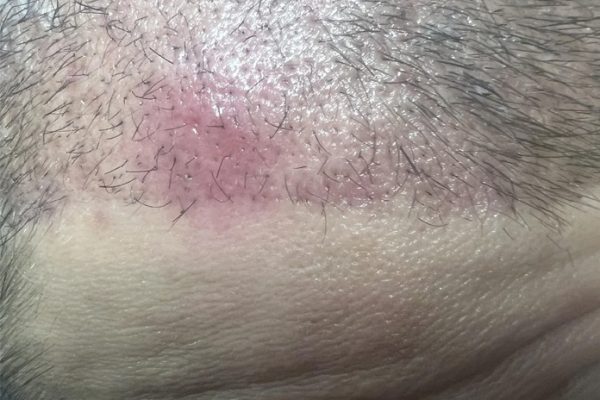Getting a hair transplant is a decision that changes life. It was restored hair or restored confidence. Like any procedure, however, it has minor side effects. A popular one is pimples on the scalp after surgery. That is normal, and generally harmless. But proper care is essential to prevent discomfort and complications.
At Hera Hair Clinic, we help our patients each step of the way on their recovery. If pimples appear following your transplant, don’t stress. Let’s look at what causes them and how to treat them effectively.
Reasons Behind Pimple Formation After Hair Transplant
The transplanted area may develop small pimples or pustules. It is something that normally occurs within the first couple weeks. It’s actually called folliculitis; when hair follicles get inflamed. New hairs start to grow, but they can become trapped under the skin. This can lead to small red or white bumps.
Other such reasons may be:
- Pores clogged with oil and dead skin
- Improper hygiene resulting in bacterial infection
- Irritating from touching the scalp too much
- Ingrown hairs
These pimples are generally harmless and tend to go away on their own. But in some instances they can turn to pain or infection. That’s why it’s important to know how to handle them.
How to Get Rid of Pimples After Hair Transplant
Keep Your Scalp Clean
Proper hygiene is key. Avoid scrubbing up your scalp and wash with a pH volume (pH) shampoo under the instructions given by your surgeon. It helps remove dirt, oil and bacteria that can get caught in pores. If your scalp is sensitive, stay away from strong chemicals and harsh shampoos, because these can irritate the skin.
Avoid Scratching or Picking
Pimples may look tempting to touch, but resist the urge at all costs. Scratching introduces bacteria and exacerbates the infection. It can also harm the healing grafts, impacting your results.
Use Warm Compresses
Use a warm compress to soothe the area. It also opens up the pores and helps the pimples to naturally drain out. Use a soft clean cloth dampened with warm water. Use it on the specific area for a few minutes daily.
Apply Topical Treatments
Mild antiseptic or antibacterial creams can help. But before taking any medication always consult with your hair transplant doctor. They may suggest a particular ointment or lotion that’s safe to put on your damaged scalp.
Avoid Excessive Sweating
Sweat can trap dirt and bacteria in the scalp, making pimples worse. Give Up Heavy Exercise: Avoid heavy exertion for a few weeks after surgery. If you do sweat, lightly rinse your scalp with lukewarm water.
Drink Plenty of Water and Maintain a Balanced Diet
The food you eat impacts your skin’s health. Stay hydrated and eat foods high in vitamins and antioxidants. 3. Avoid greasy and processed foods that are proven to increase oil production.
Consult your doctor if necessary
If the pimples enlarge or become painful or pus-filled, see a doctor. Your surgeon might give you antibiotics or other treatments to stave off infection. If you want, our experts at Hera Hair Clinic never leave you alone.
Pimples after hair transplant: Stopping in How Long?
The pimples form between the 2nd and 8th week after surgery. They tend to go away on their own in a few weeks. Yet even a handful of months later, some patients may notice tiny breakouts, as hair continues to grow anew. This is normal and temporary.
If the breakouts continue for a long time, consult your specialist to rule out any underlying issues.
Pimples After Hair Transplant: Prevent Them
Although some pimples are inevitable, there are ways to decrease the chances of getting them:
- Be meticulous about following your surgeon’s post-operative care instructions.
- Wash your scalp well, but do not wash too frequently.
- Don’t use anything other than the hair care products prescribed.
- Don’t wear tight hats or other head coverings that trap perspiration.
- Eat a balanced diet for healthy skin.
We offer personalized aftercare at Hera Hair Clinic to achieve maximum results. Our experts share tips on maintaining the health of your scalp and preventing further complications as the best hair transplant in Turkey.
Final Thoughts
Pimples after hair transplant are temporary They typically resolve with adequate treatment. The trick to it is keeping the scalp clean, avoiding irritating and getting treatment if needed.
At Hera Hair Clinic, we have a principle that the patient is at the center of everything we do and the focus on recovery starts from initial consultation. Our team will be there to help you with any concerns that you have following your procedure. You deserve a hassle-free road to richer hair!
For more information on hair transplants or to speak to an expert, contact Hera Hair Clinic now. Have confidence in getting the best possible results, let us be of assistance!
















